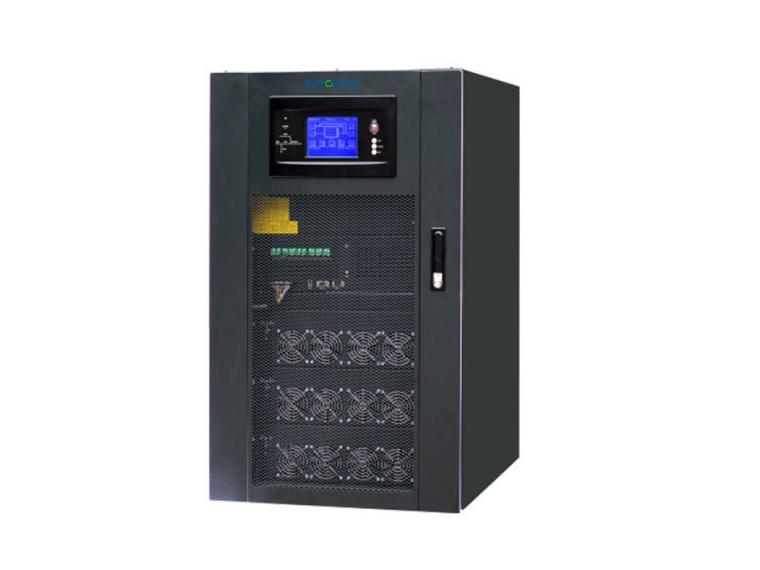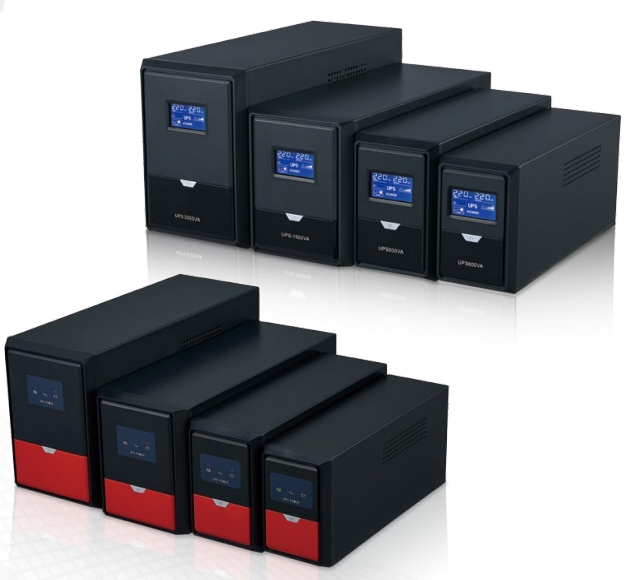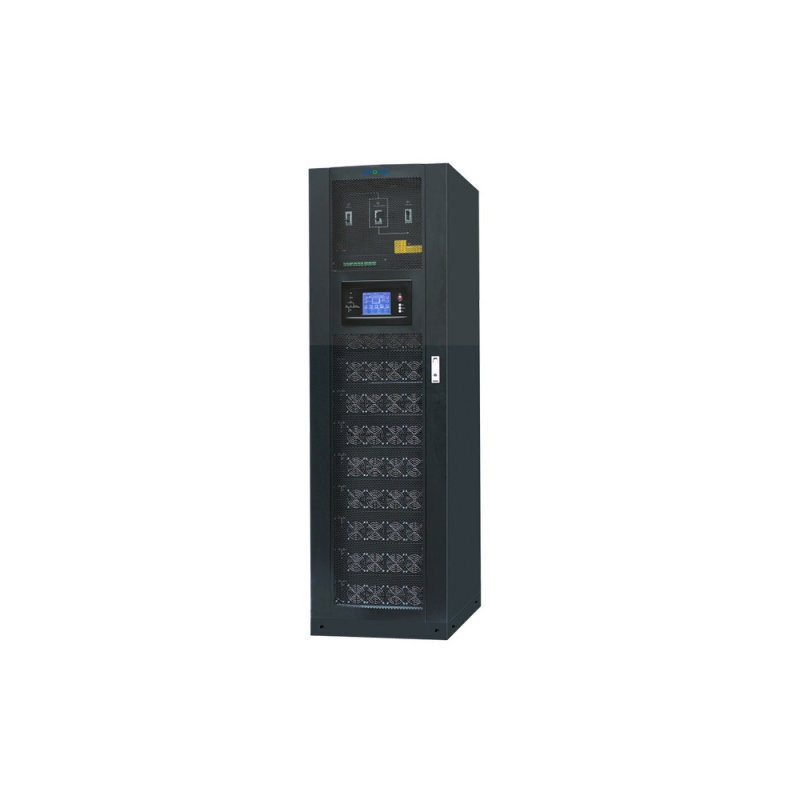

A UPS, or Uninterruptible Power Supply, is a device that kicks in with backup power when the electricity goes out or fluctuates. It keeps your gadgets running without a hitch. Think of it as a middleman between your main power and your devices, guarding against sudden spikes, surges, or blackouts. UPS units come in all sizes, from tiny ones for home electronics to massive systems for factories.
These systems are a lifeline for delicate equipment like servers, medical gear, and key network setups. You’ll find them in places like telecom companies, hospitals, banks, and even public safety offices. For example, the RM series high-frequency online UPS is built for things like servers, data centers, telecom networks, and medical facilities.
A UPS is a big deal because it keeps the power steady and saves your devices from damage when the electricity acts up. Power cuts can wipe out data, fry hardware, or halt work. A solid UPS steps in to keep things running smoothly.
Today’s UPS systems pack cool tech, like DSP (Digital Signal Processor) controls, for top-notch reliability and efficiency. They’ve got handy features too, like LCD screens for real-time updates and smart battery management. By keeping the power flowing, a UPS helps businesses stay on track and protects their valuable gear.

The big difference between online and offline UPS systems comes down to how they operate:
l Online UPS: This one uses double-conversion tech. It’s always converting AC power to DC and back to AC before sending it to your devices. That way, you get clean, stable power with no hiccups or noise. Models like the EX6KVA-10KVA high-frequency online UPS give you a pure sine wave and switch to battery instantly during outages.
l Offline UPS: Also called a standby UPS, this type pulls power straight from the wall when things are normal. If the power cuts out, it flips to battery mode in a split second. Offline systems are easier on the wallet but might not shield as well against wonky voltage compared to online ones.
Online UPS systems are the go-to for critical setups where even a tiny glitch could spell trouble. Their knack for delivering steady, clean power makes them perfect for places with sensitive electronics.
Picking between online and offline UPS depends on what you need:
Where They’re Used:
l Online UPS: Great for places that need rock-solid power all the time, like data centers, hospitals, telecom networks, and banks.
l Offline UPS: Good for less critical stuff, like home gadgets or small offices, where a brief interruption won’t ruin your day.
Cost Breakdown:
l Online UPS systems cost more because of their fancy tech and better performance.
l Offline UPS systems are cheaper but might not cut it in spots with frequent power issues or delicate equipment.
Take modular online UPS solutions like the 93M Series—they scale from 30kVA to 900kVA and hit 96% efficiency, which saves money for big operations. On the flip side, smaller offline models handle basic backup needs without breaking the bank.
In short, knowing how online and offline UPS systems differ helps you choose the right one for your needs and budget. A good UPS keeps things humming and protects your gear from power problems.
When you’re picking an online UPS, a few things matter to make sure it fits your needs. First up is power capacity. Systems like the GP33 series range from 10kVA to 200kVA, covering everything from data centers to banks to factories. Figure out how much power you need so the UPS can handle it without straining or slacking.
Efficiency and tech are also huge. Modern online UPS systems use slick features like DSP (Digital Signal Processor) controls. For example, the EX6K-EX10KL series leans on DSP to boost reliability and deliver a clean sine wave with no delay during outages. That’s a must for places with sensitive electronics.
Don’t forget about batteries. Systems with smart battery management, like the RM series, stretch battery life by charging them just right and avoiding overcharges. Some even let you swap batteries without shutting down, which is super handy.
Scalability is another thing to consider. Modular setups like the 93M Series can grow from 30kVA to 900kVA, perfect for businesses that are expanding. Plus, extras like LCD screens for real-time info and connections like RS232 or SNMP make the system easier to manage.
Online UPS systems are game-changers in industries that can’t afford power hiccups. In hospitals, steady power is critical for operating rooms, ICUs, and diagnostic machines. High-frequency online UPS models like the RT1KVA-10KVA series are made for medical settings, where even a quick blackout could put patients at risk.
In telecom, keeping networks up is everything. Online UPS systems make sure telecom networks stay online during power issues. The RM1-3KVA Rack Mount High-Frequency Online UPS is designed for servers and key network gear in this field.
Banks and stock exchanges lean on online UPS systems to protect transaction data and keep things running during outages. The GP33 series Low-Frequency Online UPS is a favorite in finance for its tough build and strong protection.
In factories, where big machines run nonstop, stable power prevents costly shutdowns or damage. The EX3320K-EX3380K three-phase high-frequency online UPS handles voltage swings, keeping production lines moving.

ZLPOWER’s online UPS systems shine thanks to our cutting-edge tech and rugged design for all kinds of uses. The GP33 series uses sixth-generation IGBT inverter tech paired with advanced digital circuits, making systems last up to 80% longer than older models. We also have smart monitoring that checks performance every second to stay reliable.
The 92M Series’ modular design is next-level. With hot-swappable modules that can stack up to 20 units, these systems offer crazy flexibility and backup. Each module has its own charger, which helps batteries last longer and charges them smarter.
Efficiency is a big win with ZLPOWER’s products. The 95M Series hits 96% efficiency in double conversion mode and 99% in ECO mode. That means less energy waste while still delivering killer performance.
ZLPOWER has options tailored for different industries. For small setups like offices or homes, the CX1K-3KVA Series High-Frequency Online UPS brings reliable power without costing a fortune.
For mid-sized businesses, the EX6KVA-10KVA range offers flexibility with features like N+X parallel redundancy. These units come with user-friendly bypass adjustments and work with generators.
Big operations love ZLPOWER’s modular systems, like the 93M Series, or three-phase models like the EX3320K-EX3380K. These are built for industries needing serious power with advanced monitoring.
ZLPOWER even tackles niche needs with products like the RA Series IP65 Online UPS, made for tough outdoor spots with extreme weather or dust.
With smart tech and user-friendly designs, ZLPOWER keeps pushing the envelope, delivering power solutions that match what industries need today.
A: Online UPS continuously supplies power with no interruption. It converts AC to DC and back to AC.
Offline UPS only switches to battery power during an outage, causing a brief delay.
A: Offline UPS is more energy-efficient since it only activates the battery during an outage.
Online UPS uses more energy due to continuous conversion between AC and DC.
A: Online UPS offers superior protection from power surges, fluctuations, and noise.
Offline UPS provides basic protection but not as robust as Online UPS.
A: Online UPS is best for sensitive equipment, offering continuous clean power.
Offline UPS is suitable for less critical equipment but may not provide the same level of protection.